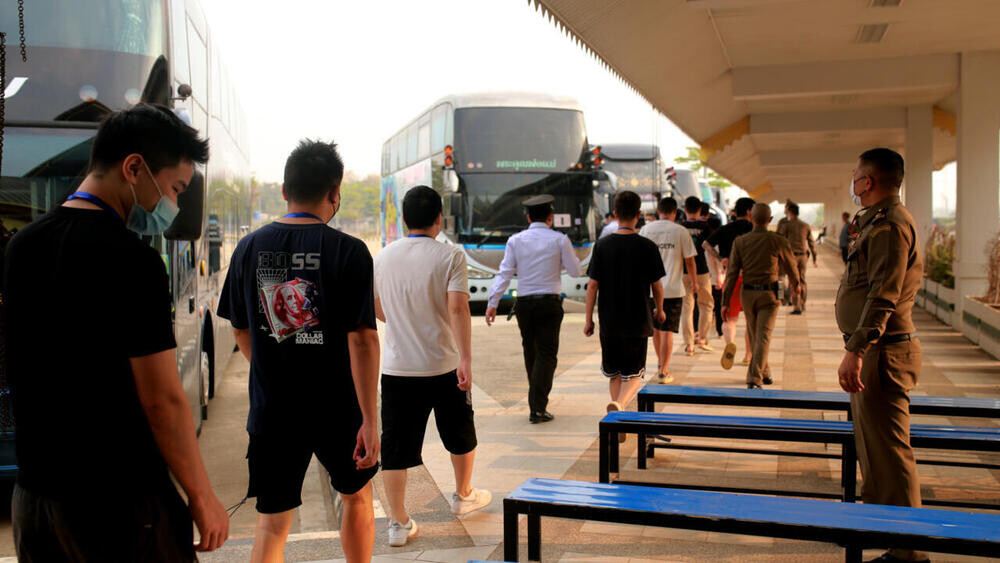
Mae Sot, Thailand – Thousands of individuals rescued from online scam operations in Myanmar are facing a precarious situation at the Thai border, trapped in a humanitarian crisis after a multinational crackdown on these criminal enterprises. The operations, run by organized gangs, have lured countless victims from across the globe.
Recent joint efforts by authorities in China, Thailand, and Myanmar have targeted the dismantling of these scam centers and illegal online activities. These centers form part of a vast network of illicit compounds throughout Southeast Asia, where the United Nations estimates hundreds of thousands have been trafficked. A recent raid by Thai and Cambodian police in a border town resulted in the release of 215 foreign nationals, according to a senior Thai official.
However, the aftermath of these raids has created a new challenge. Two Myanmar armed groups, the Karen National Army (KNA) and the Democratic Karen Buddhist Army (DKBA), are currently sheltering approximately 7,000 former scam workers. These groups are unable to transfer them into Thailand, according to a Thai security official and two aid workers operating on the Thai side of the border.
"Many are stuck in limbo, and Thailand's lack of response is causing great harm," one aid worker expressed. "It is like these victims are being revictimized again."
Thailand's foreign ministry stated that agencies are coordinating future handovers of those rescued, which will "proceed based on the readiness of the embassies or the countries of origin." The KNA and DKBA have not responded to requests for comment.
The majority of those stranded are Chinese nationals, with around 1,000 individuals from other countries also affected, the aid workers reported. Conditions in the makeshift camps are reportedly dire, with concerns mounting over sanitation and the lack of access to healthcare.
Thai Deputy Prime Minister Phumtham Wechayachai stated last Thursday that Thailand lacks the capacity to accommodate more individuals without repatriation efforts from foreign embassies. Earlier this month, Thailand accepted 260 rescued workers, over half of whom were from Ethiopia, a country without an embassy in Thailand. Thai authorities also facilitated the repatriation of 621 Chinese nationals via flights from a border town last week.
These scam centers have plagued the region for years but have come under increased scrutiny following the highly publicized rescue of Chinese actor Wang Xing. He was lured to Thailand with a false job offer, subsequently abducted, and forced to work in a Myanmar scam center.
In response, Southeast Asian nations have intensified their efforts to combat these operations. Thailand has taken steps to cut off power, fuel, and internet access to areas associated with the scam centers.
The financial impact of these scams is staggering. Since March 2022, victims of telecom scams in Thailand alone have suffered losses totaling 80 billion Thai baht ($2.4 billion), according to Thai Police Colonel Kreangkrai Puttaisong. The ongoing crisis at the Thai-Myanmar border highlights the complex challenges in addressing this transnational criminal activity and the urgent need for coordinated international action.
[Copyright (c) Global Economic Times. All Rights Reserved.]





























